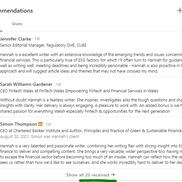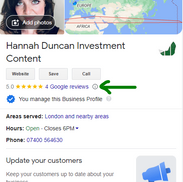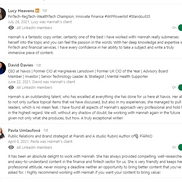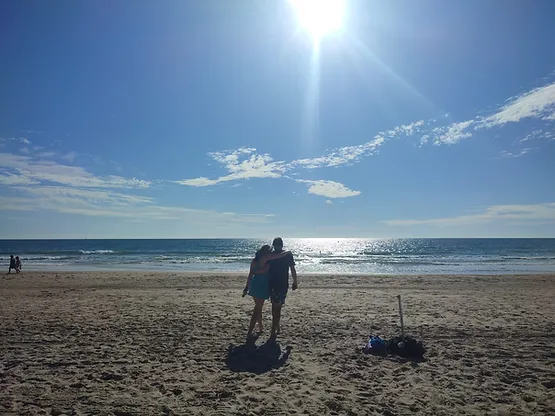Updated: Feb 19
Remember when Peter Parker threw himself off a building? Somehow this random guy trusted that the weird gunk coming out of his fingertips was going to save him. That’s kind of what it feels like to be a freelance writer. You need to type content that’s so sticky it could save you from hurling off a sky-scraper*. Without missing a beat, you’ve got to fire out super-gluey, give-me-more-now, captivating content every day… Just to afford your rent! 😅🙈
It’s stressful, unappreciated and bloody hard work. Interested? Of course you are! 😂🙌 Here’s how to become a freelance writer in 5 steps:
1. The boring stuff
Oh God. It’s so boring I don’t even want to write about it. But it must be done, so here goes. 😴😴😴😴
- Talk to an accountant. In the UK, you’re normally entitled to an hour’s free chat with a lawyer and an accountant when you start a new venture. Do that. They will advise you on what kind of company structure you should have. 👉 Useful link: Finance and support for your business (UK gov)
- Pick your company structure. For myself, I opted for a Limited Company. I did that because I expected to make more than £50,000 a year from my writing. But for people who decide to freelance as a side-hustle, a Sole Trader option could work better. It’s a decision for you or your accountant. 👉 Useful link: Setting up a business (UK gov)
- Register with Companies House. Depending on what structure you pick, you may need to register. In the UK, it costs just £12 to register with Companies House.
- Separate your bank accounts. This is optional but recommended. You can open a business account online. If you go with a bank like Starling, Revolut, Tide… it’s quite quick and painless. UPDATE: I am now a big fan of Mettle by Natwest. When you sign-up, you get access to FreeAgent for free. I did this recently and it saved me something like £330 a year. It also reimbursed the money I’d already spent.
- Subscribe to an accounting platform. This is another optional but recommended thing. I couldn’t manage without my FreeAgent accounting platform! It’s how I send invoices, review tax stuff and see who has forgotten to pay me on time. Spoiler alert: Nearly everyone. 😅 Your accounting platform can also add integrations, for example, ways to pay using a credit card which can be super useful!

2. The strategic stuff
YES! Ok, this is the fun bit. 🎉
- Figure out what you want. What do you want to achieve with your freelance business? … Money? Fame? Travelling? Ethics? Free stuff? Developing a skill? Pick one. Maybe two. For myself, I wanted to make a boss-free income. Ideally, by writing about things which are important to me.
- Find your people. Call me basic, but I wanted to make money, so I aimed for financial services. My friend Jennie has a lot more soul. She loves baking so she connected with foodie websites and blogs. Find YOUR people.
👉 FYI – Jennie’s blog, “The Marshside Pantry” 🍰
- Make yourself known. No time to be shy. Attend events. Reach out to people. Expect to be ignored. A LOT.
3. The marketing stuff
Practice what you preach! As freelance writers, we need to be good at the thing we are selling to clients.
- Build a portfolio. Write for free if you need to. Contact magazines, charities, local newspapers… and dedicate hours to crafting the perfect article 👌. Your clients need reassurance before they take a risk with you. I would also recommend drawing potential clients in with a blog. 😋
- Create a website. Exciting, right? I remember making my website. That exhilarating rush when it goes live! Make sure your contact details are clear. I also created an email with the domain name, but that’s up to you!
- Be where your clients are. For me, that’s mostly LinkedIn. Maybe Twitter. Sometimes industry events. Be front of mind. And make use of free press passes (another benefit of having a blog).



4. The client stuff
When you start, the hardest bit is getting someone to pay you for your work. This is tough. I’m getting palpitations remembering it. You’ll probably need to rely on your savings for the first few months.
- Get your first client. This is so incredibly stressful and overwhelming, that it deserves its own blog. Annnnndddd… Ping! This is my tried-and-tested approach to getting clients. ✨
- Never prioritise a new client over a steady one. I have learnt this the hard way. Reliable clients are like gold dust. And new clients are not always what they seem.
- Ask for reviews. How do you pick a hotel room? Or a restaurant? When we try something new, we go for the reviews. Whether it’s Facebook, Google, LinkedIn or something else… Get those 5 stars! ⭐⭐⭐⭐⭐



5. The money stuff 💸
Ooofff….. This is heavy. But it’s so satisfying!
- Figure out your rate. How much you charge depends on you. Prices can range from £1 – £1000 per hour. But the normal amount is somewhere between £25 and £75. Think about how long you’ve worked in the field. What publications you’ve written for. And how much of an expert you are.
- Taxes. The last thing you want is an unexpected bill for £13,000 due yesterday. (I speak from experience). Budget for taxes. Most freelancers put around 40% of their turnover in a separate account.
- Expenses. Don’t forget those coffee receipts! I have an app on my phone where I snap a pic and it registers in my accounts. Lifesaver.
👉 Useful link: Expenses if you’re self-employed (UK gov)
And one for luck … The important stuff 💕
More than anything, take care of yourself. You don’t want to end up a frazzled husk of a person.
- Take weekends. I know it’s not always possible. But try. ☀
- Ditch toxic clients. It’s not worth it.
- Do the thing you set out for. Every freelancer has a motivation. Spend more time with loved ones. Travel. Drink latte from a different coffee shop every day. Go running whenever you want. Express yourself. Ditch corporate clothes and go vintage. Take 20 minutes out every Tuesday to headbang to heavy metal. Go to sewing lessons on Friday mornings. Spanish lessons on Monday afternoons. Be who you want to be. ❤ ☕ ☀

*That was a metaphor, please God, don’t try that.



